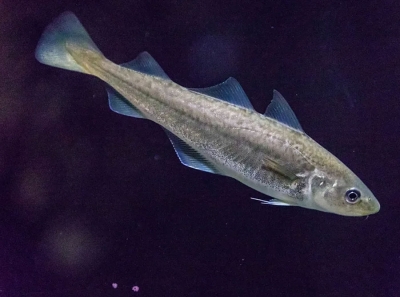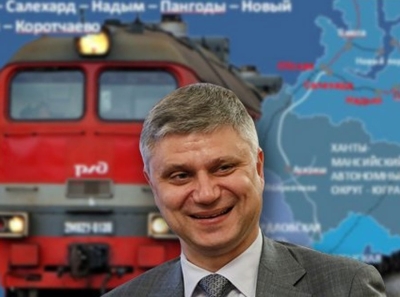Implications of shift to the right in Finland?
The conservative National Coalition Party has won a narrow victory in Finland’s parliamentary elections, securing 20.8 percent of the vote, just ahead of the right-wing populist Finns Party with 20.1 percent and Prime Minister Sanna Marin’s Social Democrats with 19.9 percent. The main issues in the election campaign were public finances and the national debt. Commentators focus on the advance of the right and its consequences.
Dangerously close to power
To Vima writes in concern:
“Sunday’s elections in Finland sent an important political message for the rest of Europe: the far right is not only present but is making threatening advances. A mixture of racist, xenophobic and above all nationalist attitudes has proved capable of bringing the far right to the brink of power. It seems inevitable that the centre-right party that won the election will have to work with it to form a government.”
Unproblematic for Ukraine
Despite a strong right, Ukrayinska Pravda sees no reason to worry:
“The political will to support Ukraine in defending itself against Russian aggression was and is great — everyone understands that the outcome of the war will determine how safe Finland will be in the coming decades. ... The Finns remember very well how they themselves were victims of aggression from Moscow, so they have — and this is what makes the Finnish right-wing populists very different from similar parties in France or Germany — more than enough ‘Russophobia’. Even the Finns Party joining the governing coalition should not be a problem. Their leader, Riikka Purra, had stressed during the election campaign that Ukraine needed even more help.”
War brings cohesion
De Volkskrant also takes the view that the Finns Party does not pose a major danger to Europe:
“If the far right gains a foothold, fundamental rights — and thus liberal democracy — will come under pressure. And the risk of blockades in the EU will increase. .... Nevertheless, the participation of the far right in government no longer provokes the terror it used to trigger in Brussels. In times of great geopolitical turmoil, even a Eurosceptic party like the Finns Party has no interest in a solitary adventure outside the EU. Traditionally they opposed Nato membership, but the war in Ukraine has changed their minds. For the time being, circumstances are forcing Europe to stick together.”
No anti-EU turnaround
This is not the right-wing shift Viktor Orbán was hoping for, says Népszava:
“In one form or another, a populist party will now be part of the Finnish government. But this won’t add up to a 180-degree turnaround in Finland’s politics. ... Finnish parties have been united in stressing that the place of Finland, which used to be so proud of its neutrality, is in Nato. ... In the shadow of the Russian threat there is no alternative to the European Union and Nato, and even most right-wing populist parties already acknowledge this. After every European election that brings a shift to the right, Hungary’s government hopes — in vain — that it will finally be able to build its anti-EU alliance.”
It’s all about the economy
Marin’s charisma was not enough to solve the country’s most pressing problems, Göteborgs-Posten sums up:
“When push comes to shove, no star status in the world can solve the interest rate crisis that the country is now facing. Finland has a high level of national debt by Nordic standards, which grew even higher during the pandemic. ... Despite Sanna Marin’s international stature Finland has chosen the boring guy in a suit who talks about GDP trends and growth curves. ... Sanna Marin may have given hope to the European left, but when it comes to saving the Finnish economy that is of little use.”
A harbinger of less optimistic times
Marin will be missed, says The Guardian:
“She remained a hugely popular figure both domestically and abroad, while pursuing an authentically social democratic and egalitarian agenda. Having assumed leadership of a coalition in which all five parties were led by women, she was accomplished in her handling of the Covid pandemic and the crisis that followed Vladimir Putin’s invasion of Ukraine. And like her onetime political ally, the former New Zealand prime minister Jacinda Ardern, she became a role model for aspirant and actual female politicians. Her departure from office in itself feels like a harbinger of less optimistic and expansive times.”
Sweden as a deterrent
Finland will shift to the right, the Süddeutsche Zeitung is sure:
“The question is how far to the right. It would be a terrible pity if the self-dwarfism of Northern Europe continued here in Finland. Since last autumn Sweden has had a conservative coalition that is strongly influenced by the right-wing populist Sweden Democrats. They should actually act as a deterrent for Orpo: the government in Stockholm presents an especially pathetic picture of dilettantism polemic squabbling and climate policy ignorance.”
Things will remain the same in foreign policy
Novaya Gazeta Evropa expects little change in Finnish diplomacy:
“Finland’s relationship with the EU and Russia is unlikely to change much with the new ruling party. The National Coalition Party is a centre-right, pro-European party. ... However changes of course may be possible if The Finns, who make no secret of their Eurosceptic stance, manage to enter the governing coalition. There is no reason for any major changes in the stance towards Russia. The overwhelming majority of Finns support both joining Nato and Ukraine in the war — and 90 percent consider a normalisation of relations with Russia impossible under the current circumstances.”
Nato accession is her key legacy
Marin’s election defeat coincides with Finland’s Nato accession, which she initiated, Deník N reminds readers:
“Nato accession is perhaps the most remarkable legacy of the outgoing prime minister. In this turn towards the Alliance we also see an example of a ‘collision with reality’ in Finland. Right up to shortly before the Russian invasion of Ukraine the public there was divided over Nato; even Marin didn’t see joining the Alliance as a priority. But the war considerably changed the attitude of the public and the politicians.”
Cutting back is popular
A majority of the electorate voted for austerity, says Yle:
“The conservative National Coalition Party advocated cuts in the election campaign. The election results show that the national debt is the biggest concern for more than a fifth of Finns. The flip side of the austerity policy an inevitable reduction in state benefits and tighter living standards for Finns who live off social security. ... For the first time the right-wing populist party The Finns has secured over 20 percent of the vote. ... The party’s line on economic policy is not very clear, but it promises to reduce unnecessary expenditures. The party is more willing to accept a shrinking of the Finnish economy than to bring in workers from abroad.”
The next weeks will be tense
The contrasting positions on fiscal policy will make coalition building difficult, Turun Sanomat explains:
“There are major differences over the conclusions to be drawn from the current situation. The right demands adjustment measures, the left rejects cuts in social security and social benefits. ... This spring remains very tense politically, because the negotiations to form a government are expected to be difficult. None of the parties has won a mandate with an overwhelming majority, and at least two of the three major parties will have to find a consensus after the election. The parties have already ruled out [certain] potential government partners, so the options are becoming limited.”









